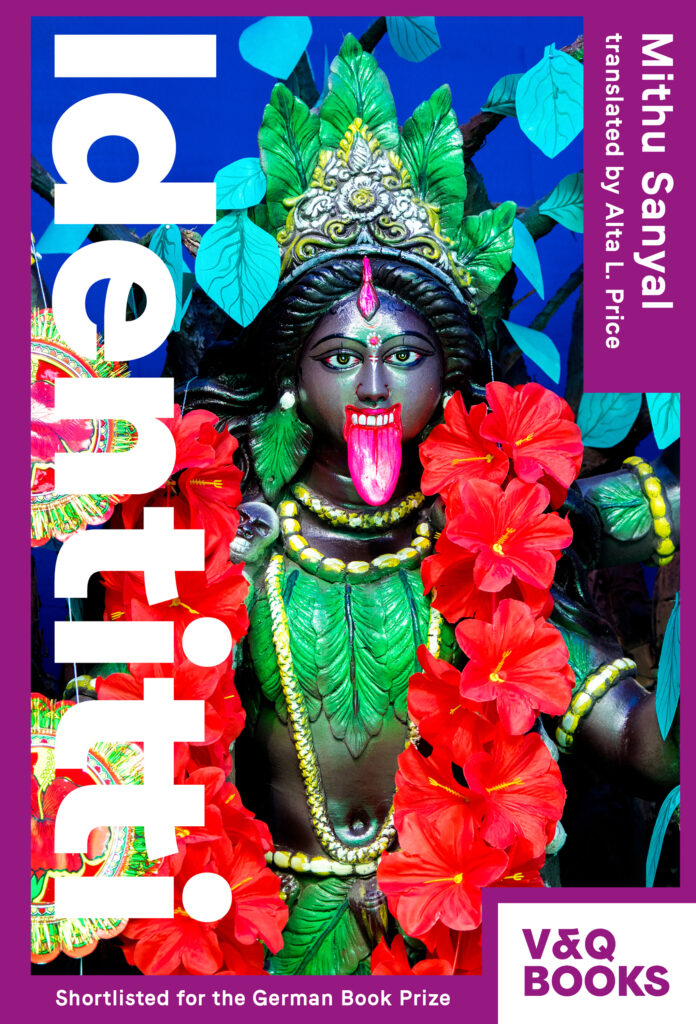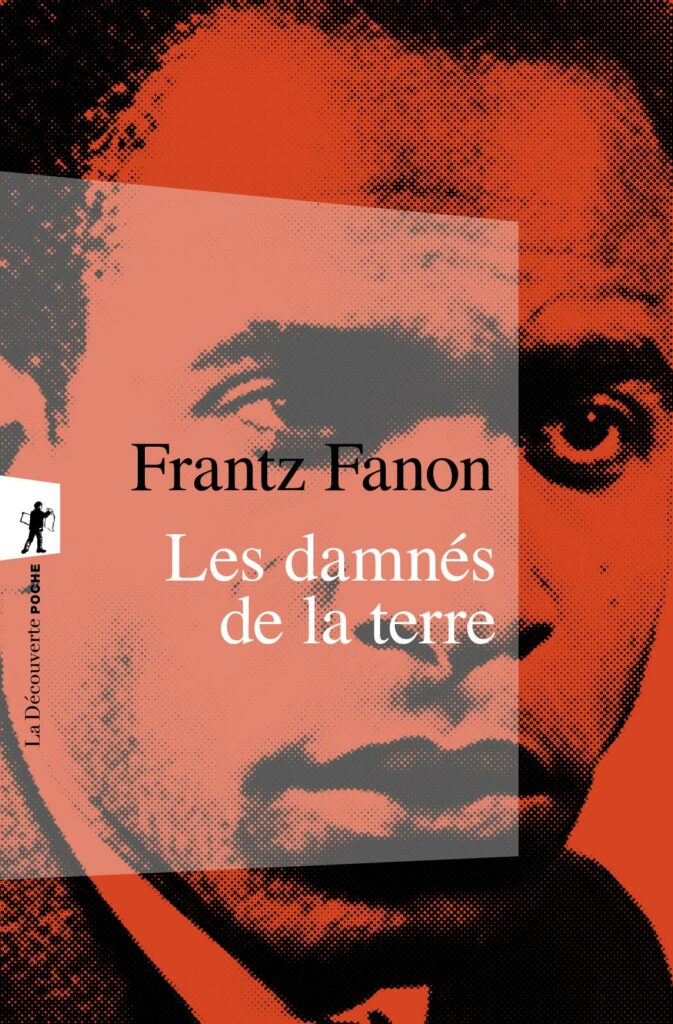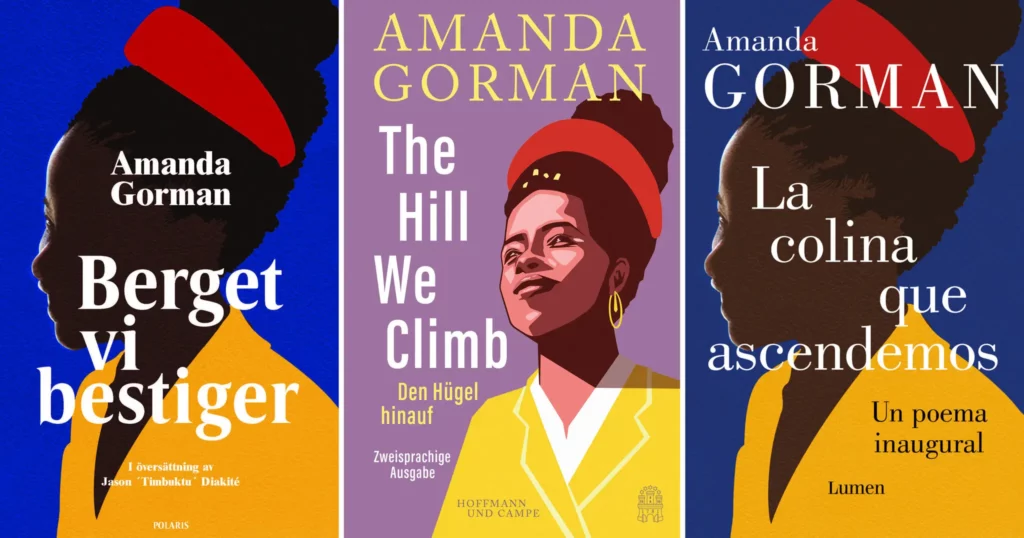
Gemma Craig-Sharples talks with Alta L. Price about her recent translation of Identitti (by Mithu Sanyal), joy in writing, and walking the fine line.
Gemma: How did you come to Identitti?
Alta: I had read part of it in German and heard buzz about in Germany, and then Jeffrey Zuckerman, a fellow translator who works from French, put me in touch with Astra House. It was a happy coincidence that they were considering it and ultimately secured the rights.
Gemma: Could you say some more about your translator’s postscript?
Alta: This is such a fun, challenging, out-there book that it deserves a fun, challenging, out-there postscript. There were certain things I had to say about my translation, because I knew another translator might have approached it differently. I thought I’d like to add something and it felt natural to me that I would echo the style of how the novel starts off, especially because I’d now finished it and wanted to talk about the novel in the same way that the novel starts. I think part of me wanted to inspire readers to start rereading it all over again. The V&Q edition is extra special because it has that playful blog bit, which wasn’t published in the American edition.

Gemma: What’s your understanding of translation?
Alta: My understanding of translation changes by the day. I hope I’m not a translator that has a certain style, because I feel like each book tells you what it needs and what it wants. And this book is absolutely unlike anything I’ve ever worked on. I do have a parallel for how I see translation, and that’s because of my background in the visual arts. I studied printmaking and in hindsight (though this wasn’t in the forefront of my mind as I was studying it) I was trained really early on in my life to know that a lithograph can do something that a woodcut or a burin engraving can’t do. They’re all prints, and you can have the same image conveyed in these different techniques and you can call them the same image, but they’re also radically different thanks to the constraints of the medium. And I do think translation’s like that. German does things English cannot; English does many things German cannot.
Gemma: What’s your working process like?
Alta: Certain decisions I made while working on this book spent a while percolating in my brain. I’d have a few ideas and then over time the right one would sort of bubble to the surface. This kind of thing happened with a lot of the Twitter handles and also when I was working out a creative way to remind the English-language reader that all of this is happening in Germany. I didn’t want to bludgeon the reader with the knowledge the story takes place in a different language, but there was a wonderful variety in the original German where some of the texts were referenced in English and some of them were referenced in German. So at first I thought I could talk about these texts and insert the German title and the German translator for all of this English-language literature, but it kind of bogged it down: it interrupted the flow of the story. That was something where at first I was really proud of myself, and then it just didn’t work – it wasn’t appropriate. But I put Frantz Fanon’s title back into French in my version, for instance, whereas it was in English in the German edition. It was interesting to weigh the options – where I needed to retain what it was in the original and where it’s more appropriate to change it, either back into German or into another language. For instance, weiße Überlegenheit appears once in the German original, but I used it more frequently; that term’s equivalent, white supremacy, appears in both the original and the translation.

Gemma: There’s also English in the German original and this differs subtly from the English you use in your version, such as when Priti’s talking about Saraswati’s ‘pound of flesh’. How did you approach this intra-English translation?
Alta: Part of it is that I speak North-American English. Priti is actually a fascinating character because she’s the one who speaks the least German at the beginning of the book. In the original book, you experience her German getting better and you’re able to see that transition, whereas obviously I can’t just mirror that in English. In my initial draft I tried, but it had the opposite effect: it seemed like she spoke more German than the other characters, which is inappropriate. With each of these characters, I try to become them, in the sense of “They’re saying this, how would I say this?”. Now, is that a different question from “How would I say this if I were them?” It’s a fine line and I don’t have an answer to my own question; I’m just thinking as if I’m in the story, and I’m at the service partially of the author but really of the source text and the end reader in English, so I try and strike a balance. And sometimes little tweaks happen like that, oftentimes it’s not even conscious.
Gemma: This question of where a translator’s responsibilities lie is also interesting in light of the novel’s discussion of identity and the recent discussion around translations of Amanda Gorman’s work in Germany and the Netherlands. Is the whole discourse around translation and identity and the question of who has the right to translate what works something that you consider in your approach to translation?

Alta: Absolutely, and that’s simply because the culture in the US – and especially in the city of Chicago, where I’m based – is incredibly racialised, so there are daily reminders that there are certain expectations, different ways of speaking. I’m fascinated by language, and language is tied to where you’re from and when you’re from and is connected to all these things. But to bring this back to the Amanda Gorman debate and the issue of identity, I’m glad you asked about this. When I was first connecting with the US publisher, I’d been told they were looking for a young translator who works from German. I basically said, I don’t know if I’d be considered young, but I am nine years younger than the author, and I’d be happy to work on the book as long as it’s not going to be a problem for any of you to work with a translator who is WHITE – the all caps were to mimic the German edition’s flap copy. They never said anything about it but I thought I should address it. I can’t easily formulate my thoughts about the whole Amanda Gorman debate… translators have to become other people. We have to: that’s the job description. I think who we are plays a role. Should it be qualifying or disqualifying? That really depends on how we treat the text. Am I able to respect my source text? Am I able to walk that fine line?
Gemma: How involved was the author, Mithu Sanyal, in your translation process?
Alta: I worked more closely with Mithu than with some other authors, but I did the full first draft before sending any questions. I do think there were ambiguities in the original and so many examples of little things that might or might not matter – for instance the skyscraper that the German public radio has its headquarters in is 19 storeys in the original. In the US system of floors that would be 20 – and I get hung up on all these things – like is 19 somehow symbolic?
And then the copy editors queried a lot of things, saying they had to look stuff up, so would it be better to explain it, and I’d say I had to look it up, too. And then Mithu would say no, leave it because Nivedita doesn’t know what it is, either; the character doesn’t have this knowledge at this point in the story so we shouldn’t define it in the text now. It was helpful to have that insight into the characters’ perspectives from Mithu. And that’s another thing about respecting the original. It’s natural for a copy editor to query those things, but to insert explanations where there aren’t any in the original text can absolutely be a violation, so that requires real sensitivity.
Gemma: There’s a whole discourse around footnoting culture and explaining concepts which readers might not necessarily be familiar with. In your translation you build in these explanations or glosses really subtly with just a couple of words. Is this generally how you approach translating cultural elements?
Alta: Again, I think that’s different for every book. I knew that stuff like Tatort and Schimanski would be known entities to the German-language reader. English-language readers who are familiar with German culture are hopefully aware of Tatort, but I’m not going to assume they are – so I did try and gloss that. But my approach has evolved over the 16 years I’ve been translating. When I started out I might have used footnotes. But now I don’t want to interrupt the flow of the original, I don’t want to take the reader out of the narrative. I want the reader to be enveloped in the story, but I don’t want them missing the fact that some of these cultural signifiers are there. So I suppose it’s selective glossing. But I also think that because of the author’s playful approach to the original, I felt at liberty to try certain things.

Gemma: That sense of playfulness is such a strong element of Identitti and it’s set alongside this fine balance of fun and seriousness. What are your thoughts on fun and translation?
Alta: If I hadn’t had fun translating this book, I don’t think the reader would have fun reading it. That was one of the things which was most clear to me: that the author had taken such joy in the writing. And yet the novel is also – and I mean this literally – dead serious in parts. Mithu mentions the mass shooting in Hanau and includes a list of the victims, and that has a gravity to it; the book really shifted for me as a reader and as a translator at that point, because it was like “we’re having fun and games over here, and people are dying over there”. It was just a real awareness of how these things go together. This book needs the levity and the reader needs to be having fun, and then we do absolutely need to be shaken out of that. For me it’s such an honour to think this book is reaching people and that my intense labour behind the scenes is bringing this book to people who might not have been able to read it before. I hope they’ll have responses and reactions.
Gemma: You also write in your Translator’s Postscript about the discourse with readers that the text invites and opens up. Do you see that interaction and conversation as an important part of translation?
Alta: As a translator I’m trying to find commonalities and relate to the characters – that’s kind of my job. Hopefully by applying my trade of translating this literature it helps actual people in the actual world better relate to each other and say to each other “I identify with your experience,” instead of saying “you had it better than I did” or “I wish I had what you had,” because those are all dividing experiences. Because if we want to be divided, we can be, and if we want to highlight our differences we can, but I feel it would be so much better if we seek out those commonalities and points of relation between us.
Gemma: What was it like translating a novel so rooted in contemporary Germany?
Alta: We – and here I mean the author, I as translator, and the editor and publisher – felt that the immediacy and freshness of the story required bringing it to readers as soon as possible, so although we’d talked about getting prominent figures from the Anglophone world to contribute Tweets for the English-language version, all that requires time and we decided against it in the end. I was also aware that some of the Twitter handles had changed, and that a lot of the slang would change. I was worried for a little while, thinking I can go this way or that way with the translation but either way it’s not going to hold up in five years, but then again language will have shifted in German, too. So it was something I was aware of, but that’s how language is, and it’s not for me to change it; it’s a snapshot. If it’s translated into English again in 50 years, it will be completely different.
Gemma: Why should people read Identitti?
Alta: It’s not about reading literature in translation in a sort of eat-your-vegetables way or because reading translated literature is like travelling and will bring you greater empathy. I’d make a different case for why people should read Identitti by Mithu Sanyal translated by Alta Price. You should read this book because it’s a wild ride and it’s fun and it challenges your notions and it doesn’t tie a neat bow on any lessons you’re supposed to learn: it just asks a bunch of questions and you, as the reader, get to live with those and hopefully bring those into your daily life.
Berlin & Chicago, 2022